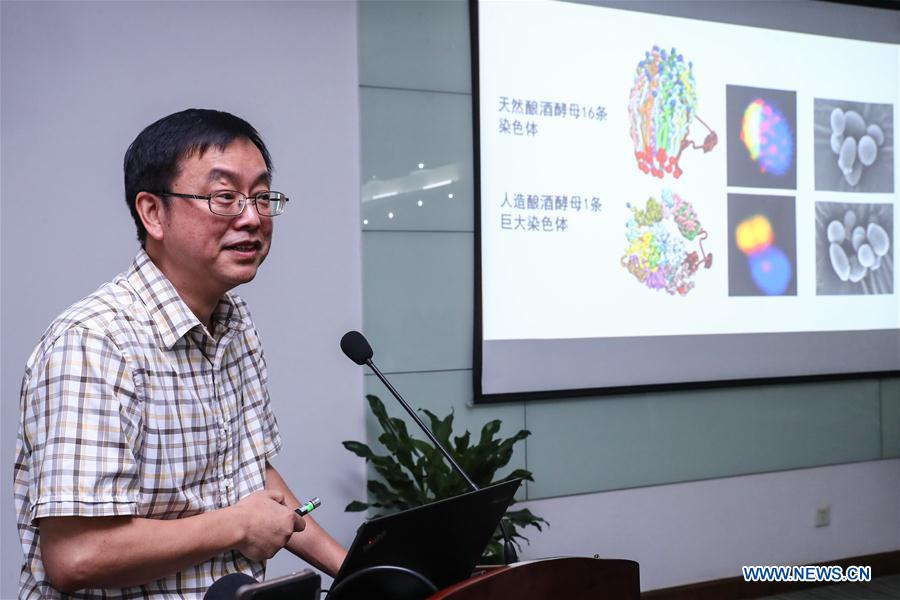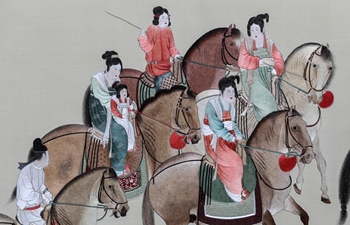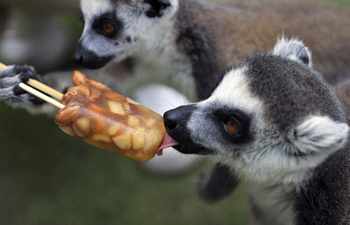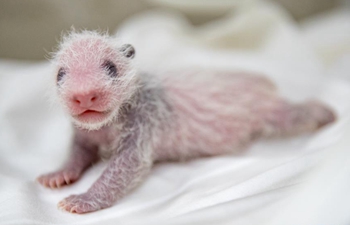
Qin Zhongjun, a molecular biologist at the Center for Excellence in Molecular Plant Sciences, Shanghai Institute of Plant Physiology and Ecology, of Chinese Academy of Sciences, introduces his research in Shanghai, east China, Aug. 2, 2018. Brewer's yeast, one-third of whose genome is said to share ancestry with a human's, has 16 chromosomes. However, Chinese scientists have managed to fit nearly all its genetic material into just one chromosome while not affecting the majority of its functions, according to a paper released Thursday on Nature's website. Qin Zhongjun and his team used CRISPR-Cas9 genome-editing to create a single chromosome yeast strain, the paper said. (Xinhua/Zhang Yuwei)
SHANGHAI, Aug. 2 (Xinhua) -- Brewer's yeast, one-third of whose genome is said to share ancestry with a human's, has 16 chromosomes. However, Chinese scientists have managed to fit nearly all its genetic material into just one chromosome while not affecting the majority of its functions, according to a paper released Thursday on Nature's website.
Qin Zhongjun, a molecular biologist at the Center for Excellence in Molecular Plant Sciences, Shanghai Institute of Plant Physiology and Ecology, of Chinese Academy of Sciences, and his team used CRISPR-Cas9 genome-editing to create a single chromosome yeast strain, the paper said.
Yeasts are a type of eukaryote, which also includes humans, plants, and animals. Humans have 46 chromosomes, whereas male jack jumper ants have just one. It seems that the number of eukaryotes' chromosomes has no correlation with the amount of genetic information they possess, the paper said.
"Our research shows that all the genetic information can be concentrated in just one chromosome," Qin said.
Researchers in the past had fused two yeast chromosomes together, but no one has ever performed the type of extreme genetic surgery that Qin and his colleagues set out to do several years ago.















